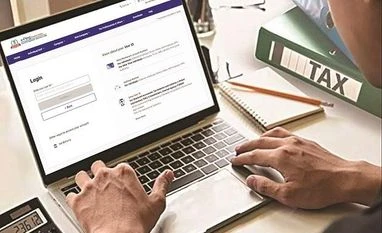Seeking to expand the taxpayer base, the government has widened the scope for filing returns even if a person’s income is below the taxable limit.
The new rules cover those whose aggregate tax deducted at source (TDS) or tax collected at source (TCS) during a fiscal year is Rs 25,000 or more. In the case of senior citizens, the aggregate of Rs 50,000 will apply.
The new amendment, which came into force on April 21, has been introduced to detect discrepancies between the expenses and incomes of people who do not have to file tax returns, according to government sources.
The move will ensure better governance, they said.
Further, those who deposit Rs 50 lakh or more in a savings bank account in a fiscal year are covered under the new regime. Businesses whose turnover exceeds Rs 60 lakh and professional receipts are more than Rs 10 lakh are supposed to file returns.
This implies small businesses and professionals (such as local kirana/grocery stores and local artists) have to file returns if they meet the above thresholds.
In order to make tax returns compulsory for such persons, the Central Board of Direct Taxes (CBDT) has introduced the seventh provision to Section 139 (1) of the I-T Act.
These rules may be called the Income-Tax (Ninth Amendment) Rules, 2022. They will come into force on the date of their publication in the official gazette, the CBDT notification said. Tax experts say this will ensure people who have the ability to incur large expenses do not escape paying taxes.
“These amendments have widened the list for mandatory return filing as it added four additional conditions. Prescribing low thresholds, especially for the TDS/TCS credit, would cover a larger taxpayer base, facilitating the detection of mischief,” said Sandeep Jhunjhunwala, partner, Nangia Andersen LLP.
Broadening the tax base
ITR filing mandatory if:
- Person having turnover/receipts of more than Rs 60 lakh from business
- Aggregate of TDS/TCS exceeds Rs 25,000; Rs 50,000 for senior citizens
- Person having receipts of over Rs 10 lakh from profession
- Aggregate deposit in savings account exceeds Rs 50 lakh
According to Jhunjhunwala, making tax filing mandatory for those with professional receipts exceeding Rs 10 lakh would add to their filing compliance because such taxpayers (carrying out business) might be maintaining books of accounts prescribed under Section 44AA of the IT Act, he said.
In 2019, the government had broadened the tax-filing criteria on similar lines -- for those depositing Rs 1 crore and more in the current account; spending Rs 2 lakh or more on foreign travel; paying electricity bills of Rs 1 lakh and more; claiming tax exemption on investment in houses, etc.
“It appears the rule has been introduced to strengthen compliance and ensure that the persons meeting the above thresholds file returns, irrespective of their income,” said Mitesh Jain, partner, Economic Laws Practice.
The latest official data suggests India had 82.2 million taxpayers, including individuals and companies, until 2019-20. According to current income tax laws, filing is mandatory only for individuals if their income/expenditure/investment meets certain defined criteria.
Unlock 30+ premium stories daily hand-picked by our editors, across devices on browser and app.
Pick your 5 favourite companies, get a daily email with all news updates on them.
Full access to our intuitive epaper - clip, save, share articles from any device; newspaper archives from 2006.
Preferential invites to Business Standard events.
Curated newsletters on markets, personal finance, policy & politics, start-ups, technology, and more.
)